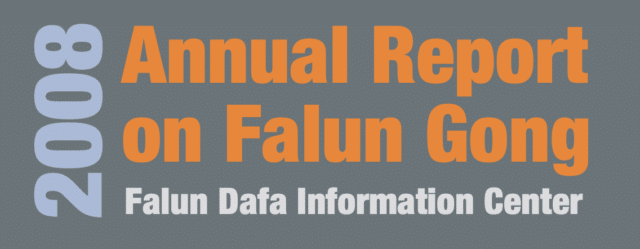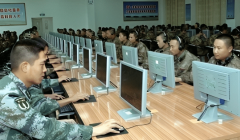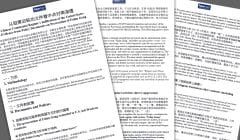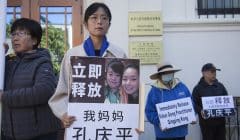Fueled by Olympics, Falun Gong Persecution Escalated Sharply in 2008
Falun Dafa Information Center Issues 2008 Annual Report as UN Rights Body Finalizes China Review

New York – The Communist Party’s campaign against Falun Gong escalated sharply in 2008 as China’s rulers took advantage of the Olympic games to catalyze and justify the large-scale arrest, imprisonment, and monitoring of Chinese citizens known to adhere to the spiritual practice, the Falun Dafa Information Center said in an annual report published on Tuesday. (Full report as PDF)
As the United Nations Human Rights Council (UNHRC) continues its review of China’s rights record this week, the Center called on the international community to publicly condemn the 2008 crackdown and take measures to prevent such abuses in the future.
“Rather than being a vehicle for improved human rights, the 2008 Olympics was a catalyst for worse persecution – not only before the games, but also after their conclusion, as an increasing number of innocent people are being sentenced to labor camps and prisons for up to 13 years,” said Falun Dafa Information Center spokesman Epring Zhang. “The Chinese regime essentially used the heightened security surrounding the games to further its own decade-long agenda of ’eradicating Falun Gong.’”
The report documents a variety of rights violations against Falun Gong adherents, both inside and outside China, that occurred in 2008. It draws on a wide range of sources including first-hand accounts from practitioners, their families, and human rights lawyers, Chinese government websites, foreign media reports, research by Amnesty International, and a thorough study by the Congressional Executive Commission on China.
The report’s key findings were:
- There was a clear and sharp escalation in the campaign against Falun Gong adherents throughout 2008.
- The escalation began prior to the Olympic games with door-to-door searches by security agents, increased surveillance, detentions, and deaths is custody. In the immediate aftermath of the games, there was an increase in sentencing, particularly to long prison terms, of individuals who had been held in pre-trial detention for months.
- The increased persecution was nationwide and top-down: While large numbers of adherents were detained, harassed, and tortured in Beijing and other cities hosting Olympics venues, reports of abuse and official directives to target Falun Gong—particularly from the central 610 Office to its subsidiaries—emerged across the country. One of the deadliest provinces was Heilongjiang, which hosted no Olympic events.
- In total, the Center received reports of over 8,000 practitioners having been detained in 2008 and 104 dying as a result of persecution—in many cases within weeks, days, or even hours of being taken into custody.
- Falun Gong adherents continued to make up a significant percentage of detainees in “re-education through labor” camps and in prisons, making them the country’s largest population of prisoners of conscience.
- Once detained, it remained commonplace for adherents to be subjected to severe torture—including sexual abuse and shocks with electric batons—to force them to disavow their faith.
- Throughout the year, a small group of approximately 20 lawyers continued to defend Falun Gong adherents, despite Party directives banning such action. Many of them faced harassment, monitoring, disbarment, and even detention or torture at the hands of the authorities.
- Falun Gong remained one of the most taboo topics of coverage for both Chinese and foreign news organizations reporting from China in 2008, with its websites blocked for the full duration of the Olympics. In at least one well-documented case, an adherent was sentenced to prison simply for downloading and circulating Falun Gong-related information from the Internet.
”For years, Falun Gong practitioners have been the largest population of prisoners of conscience in China, and that remains true today,” says Zhang. “It is imperative that the UNHRC and other international bodies place Falun Gong squarely on the table when addressing China’s human rights abuses and not permit CCP officials to side-step a critical issue that affects so many in China.”









